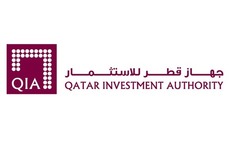
Q&A: Bain's Jonathan Zhu on Skylark and beyond
Jonathan Zhu, managing director of Bain Capital Asia, discusses the Skylark buyout, access to leverage, corporate governance in China and India, and the forthcoming Asia II fund
Q: Bain recently bought Skylark and MYOB, both secondary purchases from other PE firms. Is this part of a wider trend?
A: Yes, but at the same time I don't want to overplay it. In the US and Europe, private capital markets are more developed and you see companies that never actually get to the public market. For a steady flow of secondary deals to happen in Asia first you need to have a significant number of companies in PE portfolios. Given the low level of PE penetration across most markets, it's not ready to become a main driver of deal flow. We find interesting secondary opportunities buying from country funds where we are able to add value and accelerate growth through our portfolio support and global industry expertise.
Q: So can you see Skylark entering the public market?
A: It's possible, but probably not in the short term. Generally speaking, companies that require significant change are better off private. First, you need further change and growth before the company is ready for the public market. Second, for change to happen there is always a long-term versus short-term trade-off and the pressures of the public market can make it difficult. Third, public market investors often can't do anything to change businesses but private equity investors can.
Q: The Skylark transaction was the largest seen in Japan since the global financial crisis. To what extent does this kind of large, leveraged transaction represent Bain's strategy in Japan?
A: Everything we have done in Japan involves leverage. Despite the high levels of government debt, it's still one of the most liquid debt markets in the world and it's still possible to get very favorable financing packages. Before the financial crisis, there wasn't a debt binge in Asia and the market was never shut, even in 2008 and 2009 it was possible to borrow. The average leverage multiples were never very high, probably 3-4x supporting a deal valuation of 6-7x EBITDA. On size, we are able to do a broad range of transactions in Japan, as we are elsewhere in Asia. We can see small transactions, like Domino's Japan, that can produce extraordinary returns.
Q: With the problems in Europe, has there been a change in the banks offering financing?
A: I think so. A lot of these banks have separate balance sheets for Asian operations, so it's not entirely connected. It's more a case of risk appetite going down.
Q: In the last year, there have been corporate governance problems in Chinese companies, and similar concerns have emerged in India. How should the private equity industry respond?
A: First, you can never do too much due diligence. You need to be very thoughtful and deliberate. In China we have done three deals this year, and that's the most we have ever done. This is partly because the requirement for due diligence is high and the requirement for portfolio effort after you make the investment is very high. Although fraud happens everywhere, you could argue that China and India are a bit more risky - general industry and company specific data is less available. But does this make China and India inherently riskier? I'm not sure. They just give you different risks. For example, deals involve little or no leverage, which makes the company more resilient. And then growth cures a lot of issues. You may make a mistake in company forecasts but because the overall market is strong, that mistake isn't fatal.
Q: How did you assess risk in the case of Gome?
A: I have been asked whether Gome is a particularly risky investment and I would say no. The business risk was limited and the financial risk was almost non-existent. How many retailers are there in the world sitting on a net cash position? We spent a lot of time on management risk and concluded there was a pretty deep bench of capable managers. In the end the risk was a fight for control. However, if you go back and look at the competing business plans put forward, they were almost identical with one being slightly more aggressive than the other. We thought that risk could be managed because there is a fundamental alignment of interests. Gome has turned out to be a very good investment for us, as expected.
Q: Your first Asian fund focused on China and Japan. Will the second be any different?
A: You need critical mass and focus, so when we started in Asia we thought we should focus on a limited number of core markets. If we look at Asia I deployment, it's 60% China and 40% Japan, and it's basically fully invested. Coming into Asia II it's a bit different. We feel we are reasonably well established in China and Japan, and we can also pursue some other geographies. In 2008 we started operations in India, with investments drawn from Bain Capital X, our global fund. We also now have people with the capability to operate in Australia and Southeast Asia, so we are looking at those markets as well.
Q: Several global PE firms are preparing Asian funds. What impact will this have on the fundraising environment?
A: If you look at the overall amount of capital that gets deployed, firms like us still account for a very small percentage. To me, the real game-changing event over the last five years and potentially over the next five years is the emergence of renminbi funds. The available capital in China has increased and there are a lot of inexperienced first-time GPs.
Q: Presumably as the IPO exit multiples in Shenzhen continue to fall, some of these funds will disappear...
A: I expect some kind of a shake-out.
Latest News
Asian GPs slow implementation of ESG policies - survey
Asia-based private equity firms are assigning more dedicated resources to environment, social, and governance (ESG) programmes, but policy changes have slowed in the past 12 months, in part due to concerns raised internally and by LPs, according to a...
Singapore fintech start-up LXA gets $10m seed round
New Enterprise Associates (NEA) has led a USD 10m seed round for Singapore’s LXA, a financial technology start-up launched by a former Asia senior executive at The Blackstone Group.
India's InCred announces $60m round, claims unicorn status
Indian non-bank lender InCred Financial Services said it has received INR 5bn (USD 60m) at a valuation of at least USD 1bn from unnamed investors including “a global private equity fund.”
Insight leads $50m round for Australia's Roller
Insight Partners has led a USD 50m round for Australia’s Roller, a venue management software provider specializing in family fun parks.







